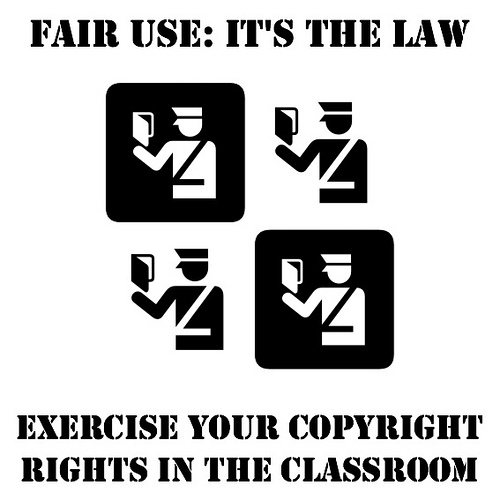
Fair Use poster image by Timothy Vollmer
The Library of Congress just released its 181 page report “The State of Recorded Sound Preservation in the United States: A National Legacy at Risk in the Digital Age” talking about the challenges of digitally archiving sound recording. BoingBoing gives a nice summary “[T]he copyright laws that the recording industry demanded are so onerous that libraries inevitably have to choose whether to be law-breakers or whether to abandon their duty to preserve and archive audio.” More analysis from OSNews.
And if anyone’s wondering where I’ve been this week, the answer is “Mired in getting copyright permissions for the intellectual property in my book. Thanks for asking.” I have a pretty firm grasp of Fair Use and have been trying to follow the guidelines for Fair Use in Media Literacy Education. I signed a book contract that specifically says that I am responsible for assuring that my materials are being used with permission. Despite this, my publisher (who I am quite fond of otherwise) is risk-averse and wants to make sure I have permission anyhow. Permission that I assert that I don’t need for small screenshots of, say, Google search results or an ALA nested menu.
This gets even more confusing when some of the organizations involved claim that I need permission when I don’t. Since Fair Use, like the Americans with Disabilities Act, is mostly something that gets hammered out through litigation there is no strict set of guidelines as to what Fair Use is. So, big companies with a lot to lose err on the side of compliance with other big companies’ requests, requests that may be extralegal. So Google can’t legally tell you to only use the public domain offerings from Google Books (which they admit) but they make a polite request, a polite request that sounds a lot like a terms of service.
So right now I’m waiting to hear back from Facebook after filling out a form on their website asking for permission to use a screenshot. They say it will take 1-2 weeks. I am confident that my screenshot is fair use. My editor also thinks it is fair use. However they’re not willing to risk it. And so we wait.

